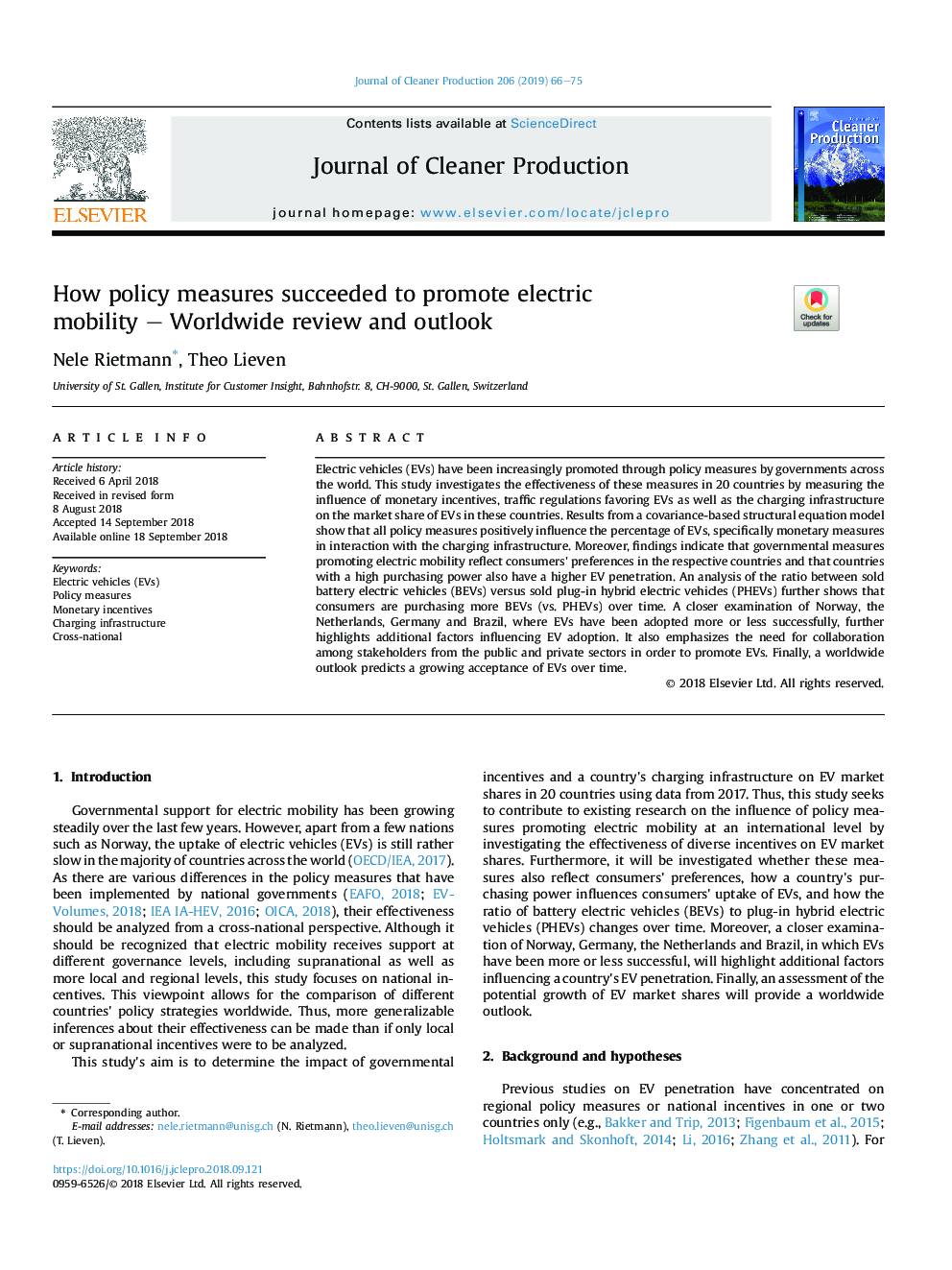| Article ID | Journal | Published Year | Pages | File Type |
|---|---|---|---|---|
| 11019716 | Journal of Cleaner Production | 2019 | 10 Pages |
Abstract
Electric vehicles (EVs) have been increasingly promoted through policy measures by governments across the world. This study investigates the effectiveness of these measures in 20 countries by measuring the influence of monetary incentives, traffic regulations favoring EVs as well as the charging infrastructure on the market share of EVs in these countries. Results from a covariance-based structural equation model show that all policy measures positively influence the percentage of EVs, specifically monetary measures in interaction with the charging infrastructure. Moreover, findings indicate that governmental measures promoting electric mobility reflect consumers' preferences in the respective countries and that countries with a high purchasing power also have a higher EV penetration. An analysis of the ratio between sold battery electric vehicles (BEVs) versus sold plug-in hybrid electric vehicles (PHEVs) further shows that consumers are purchasing more BEVs (vs. PHEVs) over time. A closer examination of Norway, the Netherlands, Germany and Brazil, where EVs have been adopted more or less successfully, further highlights additional factors influencing EV adoption. It also emphasizes the need for collaboration among stakeholders from the public and private sectors in order to promote EVs. Finally, a worldwide outlook predicts a growing acceptance of EVs over time.
Keywords
Related Topics
Physical Sciences and Engineering
Energy
Renewable Energy, Sustainability and the Environment
Authors
Nele Rietmann, Theo Lieven,
